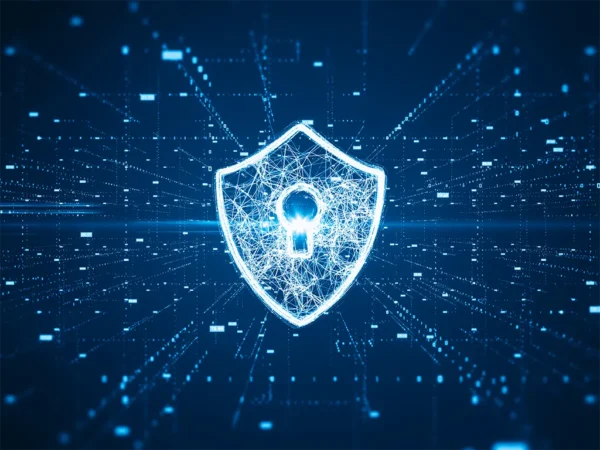As advancements in quantum computing continue to unfold, the cybersecurity landscape is on the cusp of significant changes. One of the most pressing concerns is the need to develop and adopt new encryption standards that can withstand the capabilities of quantum computers. In this overview, we will explore why this is necessary, how to future-proof encryption, the timeline for maintaining traditional encryption keys, strategies for adopting new systems today, along with effective key management practices.
Understanding Quantum Computing
Quantum computing is an advanced field of computing based on the principles of quantum mechanics. Unlike classical computers, which use bits as the smallest unit of data (either 0 or 1), quantum computers use quantum bits or qubits.
Qubits vs. Traditional Transistors
Traditional computers operate on bits, which are the basic units of information and can be in one of two states: 0 or 1. These bits are implemented using transistors, which are tiny electronic switches that can be either off (representing a 0) or on (representing a 1). The computation in classical computers involves performing logical operations on these bits through a series of on-off switches.
In contrast, qubits, the fundamental units of quantum computers, are vastly different. Qubits leverage the principles of quantum mechanics, specifically superposition and entanglement.
Superposition allows a qubit to exist in multiple states simultaneously. This means a qubit can be in a state representing 0, 1, or any quantum superposition of these states. As a result, a quantum computer can process a massive number of possibilities at once, significantly increasing computational power for certain tasks.
Entanglement is another quantum phenomenon where qubits become interconnected such that the state of one qubit is directly related to the state of another, no matter the distance between them. This interconnection allows quantum computers to perform complex operations more efficiently than classical computers, which process bits sequentially.
The Promises of Quantum Computing
Quantum computing holds immense potential to revolutionize various fields. In drug discovery and material science, quantum computers can simulate molecular and chemical reactions at an unprecedented scale, leading to breakthroughs in pharmaceuticals and innovative materials. In optimization problems, they can improve logistics, supply chain management, and financial modeling, resulting in cost savings and increased efficiency. Quantum computing can accelerate artificial intelligence and machine learning algorithms, enhancing applications ranging from natural language processing to image recognition and autonomous systems. Additionally, quantum computers can process vast amounts of data to create more accurate climate models and weather predictions, improving our understanding of climate change and enabling better disaster preparedness and response.
Why NIST is Developing New Encryption Standards
The National Institute of Standards and Technology (NIST) is spearheading the development of new encryption standards to address the emerging threats posed by quantum computing. Quantum computers can potentially break many of the cryptographic algorithms currently in use, such as RSA and ECC, due to their ability to solve complex mathematical problems much faster than classical computers. NIST’s post-quantum cryptography project aims to standardize algorithms that can resist quantum attacks, ensuring the continued security of digital communications, financial transactions, and data storage.
Timeline for NIST’s Post-Quantum Cryptography Project
NIST began soliciting proposals for post-quantum cryptographic algorithms in 2016. The project has been progressing through multiple phases of evaluation, including public comment and rigorous testing. NIST plans to announce the first set of post-quantum cryptographic standards around 2024-2025. This timeline allows for thorough vetting of the proposed algorithms to ensure their security and practicality in real-world applications.
The Security Status of RSA-2048
As of now, RSA-2048 encryption has not been broken using conventional computing methods. It remains secure against classical attacks due to the computational difficulty of factoring large numbers. However, the potential future threat from quantum computing cannot be ignored.
Why Breaking RSA-2048 is the Litmus Test for Quantum Capabilities
RSA-2048 is widely used in securing sensitive data, including financial transactions, email communications, and digital certificates. The security of RSA-2048 relies on the practical difficulty of factoring a 2048-bit number into its prime components. Classical computers require an impractically long time to solve this problem due to the sheer computational effort needed.
Quantum computers, however, could dramatically change this landscape. Shor’s algorithm, a quantum algorithm, can factor large numbers exponentially faster than the best-known algorithms running on classical computers. If a sufficiently powerful quantum computer can run Shor’s algorithm to factorize a 2048-bit number, it would effectively break RSA-2048 encryption.
Breaking RSA-2048 is considered the litmus test for quantum capabilities because it represents a clear and practical demonstration of a quantum computer’s power. It showcases the ability of quantum technology to solve a problem that is infeasible for classical computers, thus highlighting the urgent need for quantum-resistant cryptographic standards.
Concerns Over Adversarial Development of Quantum Computing
The race to develop quantum computing is not just a technological competition but also a strategic one with significant national security implications. If adversarial countries develop quantum computing capabilities before others, they could potentially exploit weaknesses in current encryption methods to gain unauthorized access to sensitive information. This could include intercepting secure communications, decrypting classified data, and undermining financial systems. The prospect of adversaries having quantum superiority underscores the urgency for developing and deploying quantum-resistant cryptographic standards to protect national security interests.
Quantum computing poses threats to various systems and sectors. The following are some key areas that could be significantly impacted:
- Blockchain Technology: Blockchain technology, known for its robust security and decentralized nature, underpins cryptocurrencies like Bitcoin and various other applications. The security of blockchain relies on two main cryptographic principles: hashing and digital signatures. Quantum computers could potentially break these cryptographic schemes, allowing for unauthorized transactions and compromising the integrity of the blockchain.
- Financial Systems: Financial systems rely heavily on cryptographic protocols to secure transactions, protect sensitive information, and ensure the integrity of financial data. Quantum computing could break current encryption methods, exposing financial data to theft and fraud. This threat underscores the need for quantum-resistant encryption to protect financial transactions and data.
- Secure Communications: Secure communication protocols, such as SSL/TLS, rely on public-key cryptography to establish secure channels over the internet. Quantum computing could break these cryptographic protocols, allowing attackers to eavesdrop on or manipulate secure communications. Ensuring the security of online communications will require the adoption of quantum-resistant cryptographic algorithms.
- Digital Certificates and PKI: Public Key Infrastructure (PKI) systems use digital certificates to authenticate identities and secure communications. Quantum computing could compromise the security of digital certificates by breaking the underlying cryptographic algorithms. This threat necessitates the development of quantum-resistant PKI systems to maintain trust and security in digital communications.
- Data Encryption and Storage: Data encryption is critical for protecting sensitive information stored on servers, in the cloud, and on personal devices. Quantum computing could break current encryption standards, exposing encrypted data to unauthorized access. Adopting quantum-resistant encryption algorithms will be essential to safeguard sensitive data against quantum threats.
Deploying Encryption Today
When adopting new systems today, companies should use a combination of current well-established encryption standards and prepare for future post-quantum cryptographic standards. Using AES with 256-bit keys for symmetric encryption, RSA with 2048-bit keys, and ECC with a comparable security level for public-key encryption, and the latest version of the TLS protocol for securing network communications is recommended. Combining traditional and post-quantum algorithms to ensure compatibility and futureproofing, experimenting with and integrating leading candidates from NIST’s post-quantum cryptography competition, implementing systems that support algorithm agility, and ensuring compliance with industry standards and best practices are crucial steps.
Strategies for Future-Proofing Encryption
Future-proofing encryption involves adopting strategies that ensure resilience against future threats, including those posed by quantum computing. Developing and implementing algorithms that are resistant to quantum attacks is crucial. Using a combination of traditional and post-quantum algorithms can secure communications, allowing for a gradual transition while maintaining current security levels. Designing systems that can easily switch to different cryptographic algorithms as new standards are adopted, frequently updating and rotating encryption keys, using larger key sizes, and continuously conducting security audits can help in future-proofing encryption.
Key Management: The Cornerstone of Future-Proof Encryption
Effective key management is crucial for maintaining secure encryption both today and in the future. Proper key management ensures that cryptographic keys are generated, stored, distributed, rotated, and revoked securely, protecting them from unauthorized access and potential threats. Robust key management practices are essential to futureproofing your encryption strategy because they provide the foundation for secure cryptographic operations and help mitigate the risks posed by quantum computing. Here are some best practices for key management:
Using hardware-based random number generators to ensure the cryptographic strength of keys, storing keys in secure environments such as Hardware Security Modules (HSMs) or Trusted Platform Modules (TPMs), using secure channels for key distribution, regularly rotating keys to limit the exposure of any single key, establishing and enforcing policies for key revocation, and continuously monitoring key usage and access logs to detect and respond to suspicious activities. By implementing these key management practices, companies can ensure robust encryption today and prepare for the future landscape of quantum-resistant cryptography.
Conclusion: Preparing for the Future of Encryption
The cybersecurity landscape is evolving rapidly, and preparing for future threats, particularly those posed by quantum computing, is essential. By adopting a combination of current and post-quantum cryptographic standards, implementing agile cryptographic systems, and employing effective key management practices, companies can future-proof their encryption and ensure robust security in the years to come. Stay informed, plan ahead, and prioritize security to protect your organization’s data and communications.


